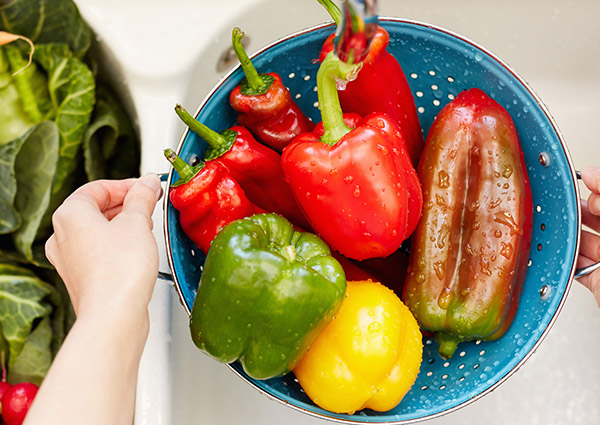
Incorporating Clean Concepts into Your Life
Eating clean means eating more fruits, veggies and whole grain foods, while limiting or eliminating unhealthy foods from our diet. To live clean, dump unhealthy lifestyle choices such as smoking, excessive drinking or a sedentary lifestyle. Also, focus on positive lifestyle changes, such as getting enough exercise and sleep, plus lowering your stress levels.
Here are some tips:
1. Focus on fruits and veggies. According to a 2018 report from the Centers for Disease Control and Prevention, only 1 in 10 Americans eat the recommended amounts of fruits (1-1/2 to 2 cups) and vegetables (2 to 3 cups). Ideally, much of this will be local and seasonal fresh produce. This creates a smaller carbon footprint and a cleaner earth, benefiting everyone.
But…eating clean can include frozen or canned food; actually, some are as nutritious as fresh produce.
2. Go with whole grains. Avoid refined carbs because when grains are manufactured, much of their nutritional value is lost. Check the ingredients; the first one listed should say whole grains. Enriched wheat flour has been processed; grains that are closer to their just-harvested state are better.
But…don’t fret over trying to find the perfect product every time. Don’t like whole-wheat pasta? Buy regular pasta to pair with roasted veggies or other healthy ingredients.
3. Avoid processed foods when possible. Foods that are far removed from their natural state are likely filled with artificial ingredients and unhealthy preservatives, as well as robbed of most of their nutrients. Convenient processed foods are easy-to-prep options, but probably sugar and sodium-laden.
But…not all processed food is bad. Canned tomatoes, fortified cereals, yogurt cups and peanut butter can be healthy.
4. Reduce meat. Lean meats are great sources of protein, iron and other nutrients. Look for better choices that are labeled grass-fed, antibiotic-free, wild-caught or free-range. You don’t have to cut out meat entirely as long as it’s not the meal’s focus. Plus, reducing meat consumption uses the earth’s resources more wisely, leading to a cleaner planet.
But…highly processed meats like hot dogs, sausage and bacon are not good candidates for frequent eating.
5. Live cleaner. That means quitting smoking and drinking coffee and alcohol in moderation. These are big changes, so allow yourself time. Other clean living factors include good sleep, regular exercise and reduced stress. Yoga, journaling or meditation may help.
But…remember it’s a lifestyle, not a quick fix.
https://www.cdc.gov/nutrition/downloads/fruits-vegetables/2018/2018-fruit-vegetable-report-508.pdf




